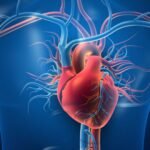“What is Dementia? A Comprehensive Overview
Dementia is a general term used to describe a decline in cognitive function severe enough to interfere with daily life. It is not a single disease but rather a syndrome that affects memory, thinking, orientation, comprehension, calculation, learning capacity, language, and judgment. Dementia is caused by a variety of diseases and conditions, most notably Alzheimer’s disease. Understanding dementia, its symptoms, causes, and progression is essential for managing the condition and supporting those affected.

Types of Dementia
Dementia manifests in various forms, each with unique characteristics. The most common type is Alzheimer’s disease, accounting for 60-80% of cases. Alzheimer’s is characterized by the gradual buildup of amyloid plaques and tau tangles in the brain, leading to neuron damage and cognitive decline.
Vascular dementia, the second most common type, occurs due to reduced blood flow to the brain, often following a stroke or series of small strokes. This form of dementia typically affects problem-solving, focus, and organizational abilities more than memory.
Other types include Lewy body memory loss, which is associated with abnormal protein deposits called Lewy bodies in the brain, and frontotemporal dementia, which primarily affects personality, behaviour, and language due to damage to the brain’s frontal and temporal lobes.
Symptoms of Dementia
Memory loss symptoms vary depending on the type and progression of the condition but generally include memory loss, confusion, and difficulty with communication. In the early stages, individuals may struggle with recalling recent events, finding the right words, or keeping track of time. As dementia progresses, these challenges become more pronounced, leading to disorientation, mood swings, and behavioral changes. In advanced stages, individuals may lose the ability to perform daily tasks, recognize loved ones, or care for themselves.
Causes and Risk Factors
Memory loss results from damage to brain cells, which hinders their ability to communicate effectively. This damage can be caused by several factors, including neurodegenerative diseases like Alzheimer’s, vascular conditions, head injuries, and infections. Age is the most significant risk factor for dementia, with the likelihood increasing as people age. Genetics also play a role, particularly in certain types of dementia like Alzheimer’s. Other risk factors include high blood pressure, diabetes, smoking, excessive alcohol consumption, and a sedentary lifestyle.
Diagnosis and Treatment
Diagnosing memory loss involves a comprehensive assessment, including a review of medical history, physical examinations, cognitive and neuropsychological tests, and brain imaging. Early diagnosis is crucial as it allows for better management of symptoms and planning for the future. While there is no cure for most types of memory loss, treatments are available to manage symptoms and improve quality of life. Medications, such as cholinesterase inhibitors and memantine, can help with memory and cognitive functions. Non-drug therapies, including cognitive stimulation, physical exercise, and social engagement, also play a vital role in managing memory loss.
Living with Dementia
Living with memory loss presents significant challenges for both individuals and their families. However, with the right support and resources, people with dementia can maintain a good quality of life. Caregiving often becomes a central aspect of managing memory loss, requiring patience, understanding, and adaptability. It’s essential to create a safe and supportive environment, encourage social interaction, and engage in activities that stimulate the mind and body. Support groups and counseling can also provide valuable assistance for caregivers and families.
Conclusion
Dementia is a complex and challenging condition that affects millions of people worldwide. By understanding the various types of dementia, recognizing the symptoms, and knowing the available treatments and support options, individuals and families can better manage the condition. Raising awareness about dementia is crucial to improving care, reducing stigma, and advancing research toward finding more effective treatments and ultimately, a cure.



